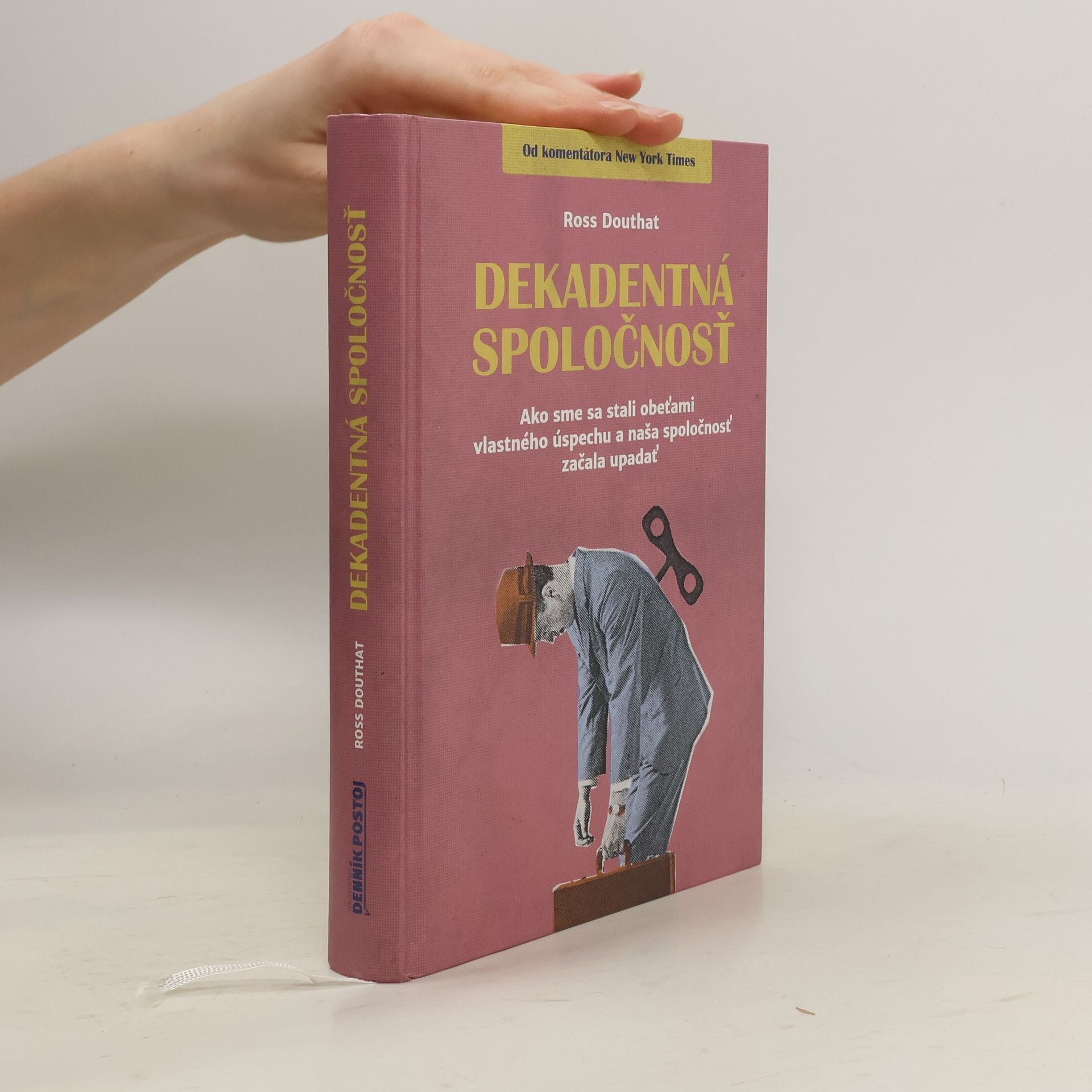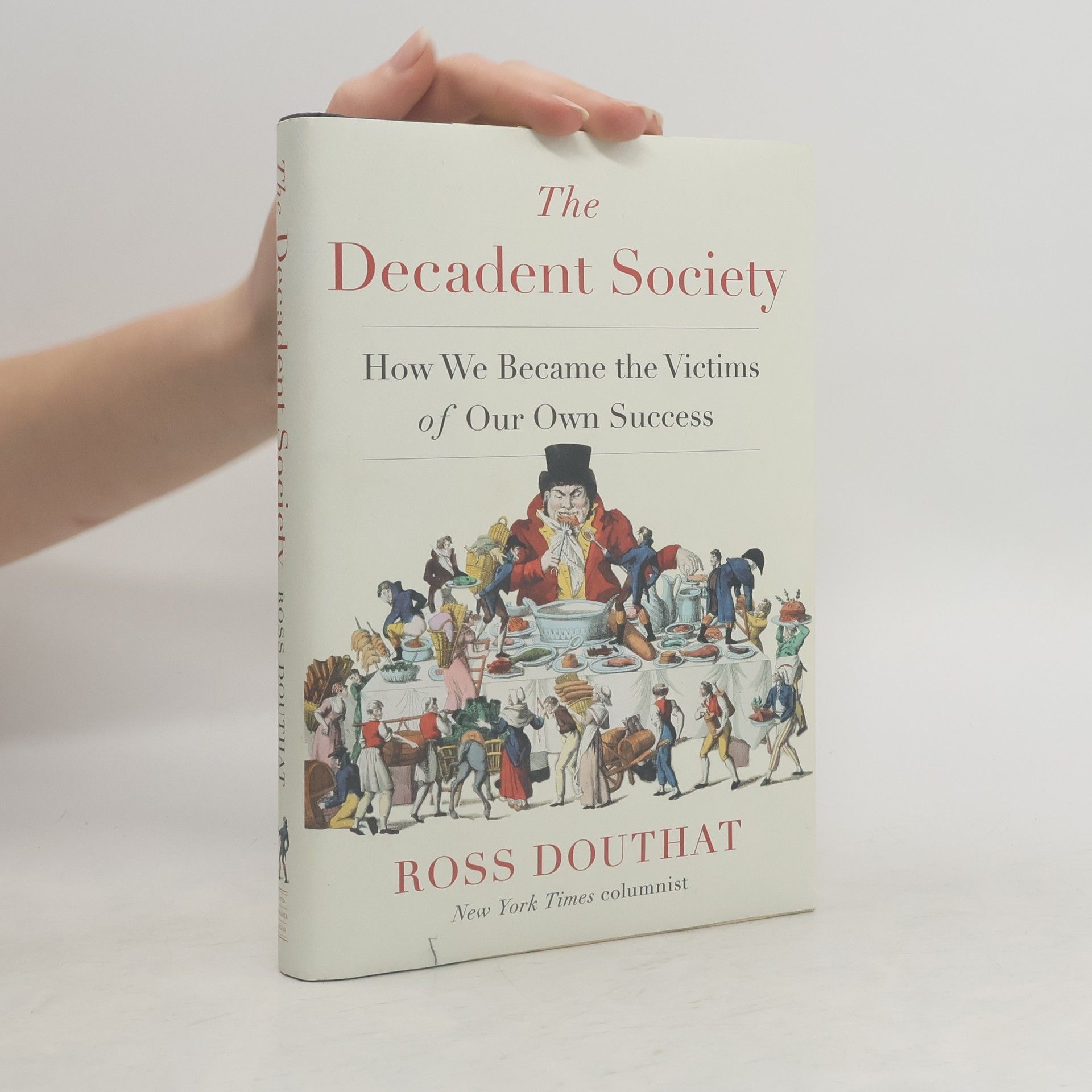Exploring the tension between doubt and belief, this book argues that religious faith offers a more coherent understanding of reality compared to skepticism. Ross Douthat, a New York Times columnist, addresses the struggles of believers in reconciling their faith with modern scientific and progressive views, ultimately advocating for the value of faith in navigating contemporary challenges.
Ross Douthat Book order (chronological)
Ross Douthat is a prominent conservative voice, recognized for his incisive commentary on American culture and politics. Through his prolific writing, he delves into the intersection of tradition, faith, and contemporary society, offering a distinct perspective on the challenges confronting modern institutions. Douthat's prose is marked by its intellectual rigor and moral seriousness, prompting readers to engage with complex ideas. His work challenges prevailing narratives and encourages thoughtful reflection on the future of conservatism and the American experiment.





Západný svet sa dnes zdá byť v kríze, pričom pod povrchom chaosu sociálnych médií a reality šou sa skrýva hlbšia pravda: sme unášaní prúdom a ocitli sme sa v slepej uličke. Kniha skúma, čo sa stane, keď bohatá a mocná spoločnosť prestane napredovať, pričom bohatstvo a technologická zdatnosť sa kombinujú s ekonomickou stagnáciou, kultúrnym vyčerpaním a demografickým poklesom, čo vytvára „udržateľnú dekadenciu“. Autor tvrdí, že dnešná nespokojnosť a zmätok sú odrazom pocitu márnosti a sklamania, keďže budúcnosť nenaplnila sľuby, a cesty vpred vedú len do hrobu. Obavy z katastrofy sa miešajú s túžbou po nej, pretože akceptovať trvalú dekadenciu je ťažké. Starneme, spohodlneli sme a stratili sme vieru v budúcnosť, pričom čakáme na záchrannú inováciu, zatiaľ čo sa ponárame do svetla obrazoviek. Autor sa zaoberá optimistami, ktorí tvrdia, že sme bohatší a šťastnejší, aj pesimistami, ktorí očakávajú kolaps. Stanovuje diagnózu modernej spoločnosti: ako sme sa sem dostali, ako dlho môže trvať vek frustrácie a akým spôsobom sa naša dekadencia môže skončiť – či renesanciou, alebo katastrofou.
In this vulnerable memoir, a New York Times columnist recounts his five-year battle with a disease that officially doesn’t exist, probing the limits of modern medicine and the hidden truths revealed through suffering. In the summer of 2015, as he relocated his family to a picturesque Connecticut farmhouse, he fell victim to a mysterious illness that left him sleepless and in excruciating pain. After months of consultations, he learned he had chronic Lyme disease, a condition that devastates many lives yet lacks official recognition and a medically approved cure. His once-dreamy home became a prison, and his quest for help led him beyond conventional medicine into a realm filled with unconventional treatments and self-experimentation. Gradually, he came to understand that many labeled as "cranks" might actually be victims of an indifferent medical system, and that profound insights often lie beneath the surface of everyday life. This narrative explores the harsh realities of illness, the limitations of medical professionals, and the resilience discovered in adversity. It ultimately reveals that sickness, while devastating, can also teach appreciation for ordinary life, challenge established norms, and uncover inner strength and hope in the darkest times.
The Decadent Society
- 272 pages
- 10 hours of reading
A powerful portrait of how our age in human history, so superficially turbulent, is actually defined by stagnation, repetition, deadlocks, and decay.
Zmienić Kościół. Papież Franciszek i przyszłość..
- 350 pages
- 13 hours of reading
Mocna, prorocza książka, którą powinni przeczytać wszyscy, którym leży na sercu los Zachodu i przyszłość chrześcijaństwa. Rod Dreher, autor bestsellera Opcja Benedykta, analizuje postać Franciszka, który dla wielu jest zarówno skromnym przywódcą Kościoła, jak i superpapieżem, walczącym z globalnymi kryzysami. Jego dążenie do reform w kwestiach małżeństwa, seksualności i rozwodów budzi kontrowersje, a wielu katolików postrzega te zmiany jako zdradę nauczania Kościoła i słów Jezusa. Pontyfikat Franciszka to sukces medialny, ale także ryzykowna gra, która zagraża autorytetowi papieża, prowadząc do potencjalnych buntów i schizmy. Douthat bada historyczne, teologiczne i kulturowe konflikty związane z dążeniem Franciszka do zmian, opisując intrygi i spory między biskupami oraz kardynałami. Ocena ery Franciszka staje się kluczowa w kontekście kryzysu liberalnego porządku, populizmu i ekstremizmu. Pytanie, czy Franciszek mądrze wykorzystuje swój autorytet, by zaproponować chrześcijańską alternatywę, czy raczej dostosowuje Kościół do nowoczesnego świata, ma fundamentalne znaczenie dla przyszłości katolicyzmu i Zachodu. To, czy zakończy jako bohater czy tragiczna postać, zadecyduje o losie Kościoła i cywilizacji.